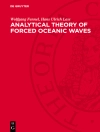This book presents case studies of risk management of various hazards and risk management systems at regional, national, and local levels. It also proposes a comprehensive approach to reduce future risks by collaborating with various stakeholders and preparing for the most effective responses toward complicated hazards, minimizing social damage.
The COVID-19 pandemic has increased the concern as well as interest in the diversification of future risks and the complexity of the damage and impact that multiple risks may cause. These hazard risks include not only natural hazards, but also biological, industrial, and nuclear hazards along with other risks such as cyber-attacks, climate change, food security, conflict, and multiple hazards occurring simultaneously.
The Sendai Framework for Disaster Risk Reduction, adopted in 2015 at the United Nations World Conference on Disaster Risk Reduction, accounts for the risks caused by natural or manmade hazards as well as related environmental, technological, and biological hazards and risks. The framework guides the multi-hazard management of disaster risk in development at all levels and sectors. However, in the current disaster management system in most countries, different offices are responsible for each different hazard, making it extremely difficult to manage those hazard risks comprehensively.
Having experienced the COVID-19 pandemic, it is now time to review the current risk management strategy and system, and thereafter discuss how to strengthen and transform our risk perception and manner of risk assessment and identification to tackle future multiple hazards. Simultaneously, further collaboration among experts from different backgrounds and fields will become indispensable. While the discussion of the need for an “all-hazards approach” has taken place for many years, there now needs to be discussion of a risk-focused framework.
Inhoudsopgave
Chapter 1. Introduction and overview of the all-hazard approach.- Chapter 2. Overview of disasters, climate-related risks and resilience Pathways for Asia-Pacific.- Chapter 3. History of Risk Management Approach.- Chapter 4. Adapting all-hazards planning to CBRN threats.- Chapter 5. Biological/ Pandemic Hazards.- Chapter 6. Natural Hazards Impacts on Industry and Critical Facility: Natech Risk Management Towards Resilience Building in Indonesia.- Chapter 7. Cyber Security in the perspective of Global Risk Landscape.- Chapter 8. Natural hazards triggering technological (NATECH) accidents and future perspectives.- Chapter 9. Adopting a transboundary risk management paradigm in a world of multi-hazard risks.- Chapter 10. Complex Disaster Risk Management in Afghanistan.- Chapter 11. A Planetary Health Approach to Managing Emerging Risks.- A Systemic Risk approach for Integrated Disaster Response.- Chapter 12. Challenges in promoting all-hazard approach in Japan: institutional arrangements for managing cascading effects.- Chapter 13. AHA at the local level: Japan.- Chapter 14. Information Sharing to Build Localization into All-Hazards Approaches to HA/DR.- Chapter 15. An effective business continuity planning and financing.- Chapter 16. NDMA’S POLICY ON NDRF AS ALL HAZARD RESPONSE FORCE.- Chapter 17. All-Hazards Approach (AHA) for a resilient, sustainable and inclusive society.
Over de auteur
Takako Izumi has been an associate professor at the International Research Institute of Disaster Science (IRIDe S), Tohoku University, Japan, since 2013. She also serves as a program coordinator of the Multi-Hazards Program under the Association of Pacific Rim Universities (APRU), which comprises 60 universities and academic institutes in the Pacific Rim. She holds a Ph.D. in global environmental study from Kyoto University, Japan. Her research interests include international and regional frameworks and strategies for disaster risk reduction, international humanitarian assistance, and disaster risk reduction (DRR) initiatives at local and community levels. Since May 2015, she has been a member of the Asia-Pacific Scientific and Technical Advisory Group (AP-STAG) to support the efforts of governments and stakeholders in the implementation of the Sendai Framework for DRR.
Miwa Abe became an associate professor at the Faculty of Humanities and Sciences, Tokai University, Japan, in 2022. She received her Ph.D. in global environmental study from Kyoto University, Japan. Her research interests include disaster recovery policy, social–environmental adaptation by resettlement after natural disasters at the local level, and crisis management by national and local administration. Previously, she had 7 year of experience as a firefighter in Kitakyushu City, Japan. After she joined academia, she worked for sustainable community development and community environmental management in Indonesia and other Asian countries under the Institute for Global Environmental Strategies (IGES) Kitakyushu Urban Center as a researcher.
Kumiko Fujita is a researcher at the International Consortium on Landslides. She has more than 20 years of experience in education, research, and development for natural hazard-induced disaster risk reduction, with a Ph.D. in global environmental studies from Kyoto University, Japan. Her expertise is in applying Japanese technologies of mitigating and preventing natural hazard-induced disasters, such as landslides, debris flow, erosion, and flooding, to social implementation in disaster areas in Asian countries. She has coordinated training courses for foreign engineers provided by the Japan International Cooperation Agency (JICA). She also has coordinated science programs offered by the United Nations Educational, Scientific and Cultural Organization (UNESCO) in Indonesia.
Rajib Shaw is a professor in the Graduate School of Media and Governance in Keio University, Japan. He is also a senior fellow of the Institute of Global Environmental Strategies (IGES) Japan and the chairperson of the Sustainable Environment and Ecological Development Society (SEEDS) Asia and the Church World Service (CWS) Japan, two Japanese NGOs. He is also a co-founder of a Delhi (India)-based social entrepreneur start-up, the Resilience Innovation Knowledge Academy (RIKA). Earlier, he was theexecutive director of the Integrated Research on Disaster Risk (IRDR) and was a professor in Kyoto University. His expertise includes disaster governance, community-based disaster risk management, climate change adaptation, urban risk management, and disaster and environmental education. He is also the coordinating lead author (CLA) for the Asia chapter’s 6th Assessment Report of the Intergovernmental Panel on Climate Change (IPCC). He has published 58 books and over 400 academic papers and book chapters.












